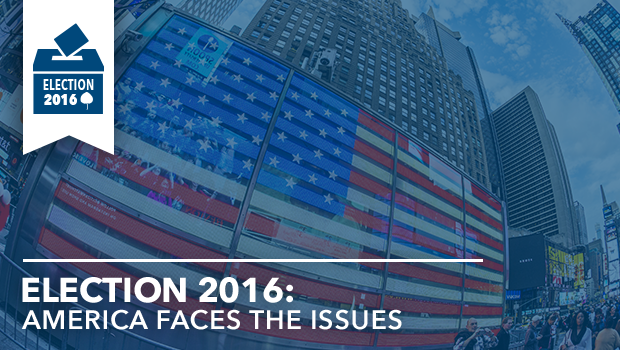This doesn’t end on Election Day.
After the ballots have been cast and counted, we will have elected a new president and even though the powers of the presidency are sometimes overrated – it’s an office with less authority than generally assumed – the choice we make will have consequences. As will the choices made in populating the next Congress. From a policy standpoint – more spending or less, higher taxes or lower, more or less inclination toward the use of military force – a general course will have been set. But the larger and ultimately more consequential question will remain. How did we get to this point: an election in which voters in the United States, the largest democracy in the world, were presented with a choice between two of the most unpopular candidates in memory (I’ll leave it to each reader to decide whether those assessments were justified)? How did we get to this year of bitter anger, frustration, and fear pouring out from all parts of the political spectrum? America has become a war zone itself, though here the weapons are, thankfully, words and votes instead of bombs and rockets. What has gone so terribly wrong?
Unless the people chosen to perform a task are incompetent, when something goes wrong the problem is usually systemic: There’s something faulty in the structure. We should start trying to figure out what’s wrong by asking about the structure – the institutional building blocks – underlying our hybrid system of an electoral democracy and a constitutional governing republic.
I’ve already written in The Atlantic and in a subsequent book about the failures of both our electoral system (laws that limit voter choice) and governing system (partisan loyalties that block efforts at cooperative problem-solving). But like a tree dependent on its subterranean network of roots, continents resting on thick layers of magma and crust, buildings supported and fed by networks of concrete and pipes, our democratic republic depends on the strength of the institutions and organizations that equip populations to function as wise citizens. It is the simultaneous failure of many of those institutions to meet that obligation that has gotten us into this mess. Here, within the limits of space constraints, are some examples:
The Education System:
Unlike dictatorships and monarchies, democracies require a citizenry capable of making intelligent decisions regarding governance. That in turn requires citizens to be knowledgeable in civics and trained in critical thinking (assessing the validity of claims). But the things that turn people into competent citizens – civics, critical thinking, and the humanities – are being washed out of the collegiate curriculum, which has now become primarily focused on job training. The result is a public sorely lacking in the ability to tell truth from fiction and easily victimized by falsehood and promises of the impossible.
The Media:
The Constitution provides unique protections to the press, giving news outlets the controversial power to write harmful, even false, stories about public citizens without punishment. Likewise, the media may not be constrained in its efforts to publish as it wishes. These freedoms stem from the Founders’ belief in the importance of an informed citizenry and those grants of privilege suggest an obligation to contribute to that goal. The 2016 election saw a media driven by greed (as the President of CBS said about Donald Trump: while he might or might not be good for America, he was good for CBS). For long months, reporters gave fuel to the Trump candidacy with fawning opportunities for exposure in order to boost ratings and profit. Add to that the focus on horse race and poll-driven “news” and reporters’ weak knowledge of constitutional process and one gets a news media that limits, rather than advancing, democracy.
The Justice System:
Nothing more shapes a community’s sense of comfort or outrage than whether the justice system merits trust. The shooting deaths of unarmed citizens are the worst and most notable examples of failure in this regard, but over-aggressive and militarized policing, over-criminalization, and prosecutorial zealotry also contribute to public frustration and anger, fraying the bonds of community, making dialogue immeasurably more difficult, and undermining the collective efforts democracy requires.
Business:
Capitalism is the logical and perhaps necessary economic system for a democratic society. Recognizing that, lawmakers have given businesses the right to incorporate in order to facilitate the raising of capital and provided corporations with legal protections not available to private citizens. Communities have provided those businesses with roads, airports, and educated workers. And too many have responded by cutting corners, laying off workers and outsourcing production in the pursuit of maximum short-term profit. The unemployed, underemployed, and shakily employed are not likely cheerleaders for the status quo.
This is only the beginning of the litany of ways in which our public institutions have failed and in so doing, helped to feed the raging fires of frustration that have ripped through the election of 2016. No matter who is elected to the presidency, to Congress, or to state and local offices, it is this – the repair of our institutional substructure – that is our greatest challenge.


